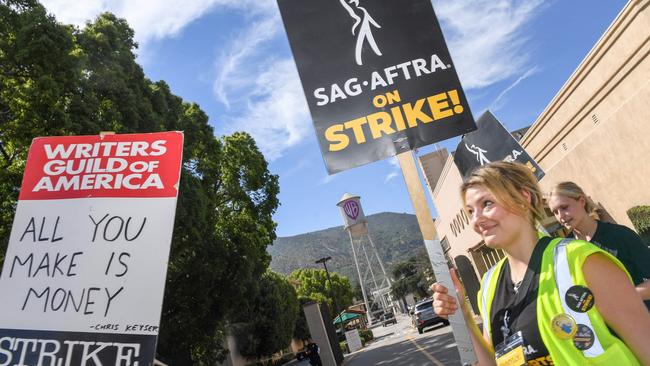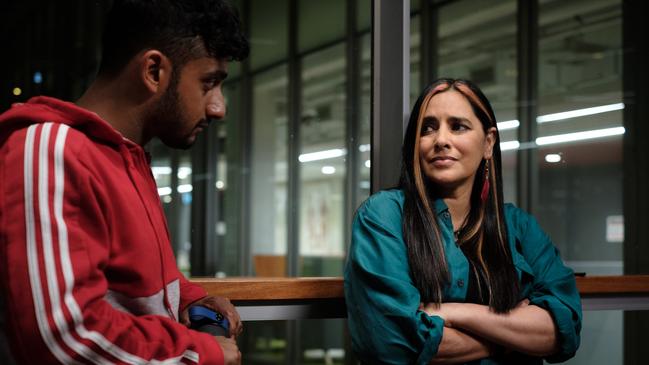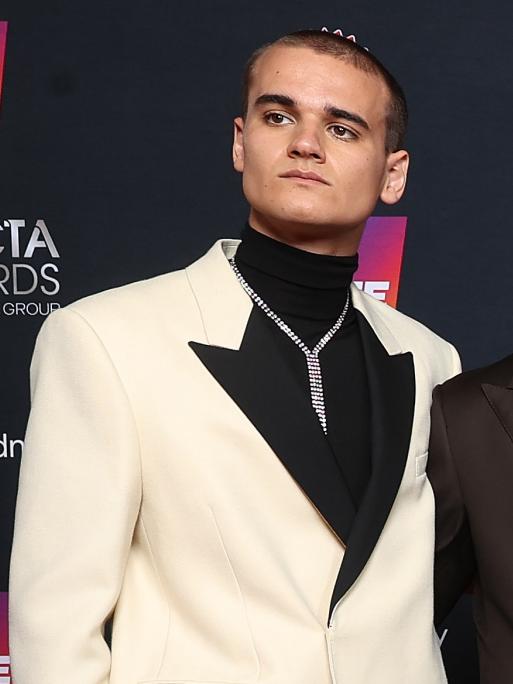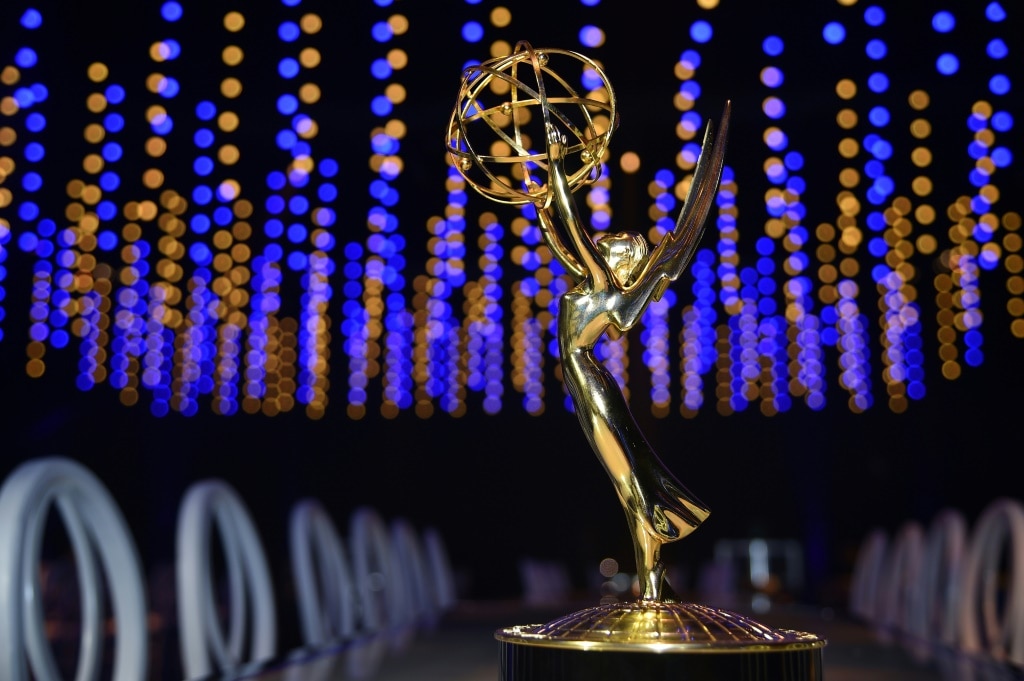Aussie actors back US strikes fearing effect on local film and TV productions
Australian stars have backed the Hollywood strikes, warning the historic picket line assault on the big studios will have a trickle-down effect on Australian film and TV productions.

Australian stars have backed the Hollywood strikes and say they will protect actors and writers locally, as they warn the historic picket line assault on the big studios will have a trickle-down effect on Australian film and TV productions.
On July 14, the Screen Actors Guild voted to join the Writers Guild of America on the picket line after negotiations with Hollywood studios broke down. It is the first time in 63 years that both sectors of the US film industry have walked off the set in unison – effectively shutting down Hollywood.
While local productions are not affected by the strike order, some of Australia’s leading actors and writers say they will have a trickle-down effect on this country’s industry.
At the centre of the strikes is a call for fair compensation from streaming services, and the death of residuals – a type of royalty payment that writers and actors could rely on.

“Residual payments are something that affects me and so many of my peers,” actor and filmmaker Arka Das, who stars in the ABC series Here Out West, told The Australian on the Logies red carpet. “It’s about time that people stood up and took it to the man.
“The conditions are not fair – people need to be treated better and paid better for the work that they do,” he said.
Under current US arrangements, streaming services pay lower residuals to actors for repeats of films and television series than broadcast television. In Australia, the MEAA negotiated residual rights for actors in 2015, but payments vary according to each production’s contracts, across both streaming and TV broadcast platforms.
“These writers and actors are making a lot of money for these corporations,” Das said.
“We need to be more equitable going forward, and treat everyone below the line and above the line in the same way.”

Will McDonald, the star of the international Netflix hit Heartbreak High said: “It’s coming to a really critical moment in how content is made, and how people are paid for their labour.
“People need to be paid a living wage, and people need to be paid for their work.
“I think I can speak for all of us when I say we stand in solidarity with strikers.”
McDonald called for aggressive guardrails around the use of artificial intelligence, which is at the centre of the strike negotiations.
“Get it out. It gives me the ick,” he said. “You can’t replace human emotion, creativity and ingenuity.
“If anything should be run by AI, it should be the business side of things.”






To join the conversation, please log in. Don't have an account? Register
Join the conversation, you are commenting as Logout